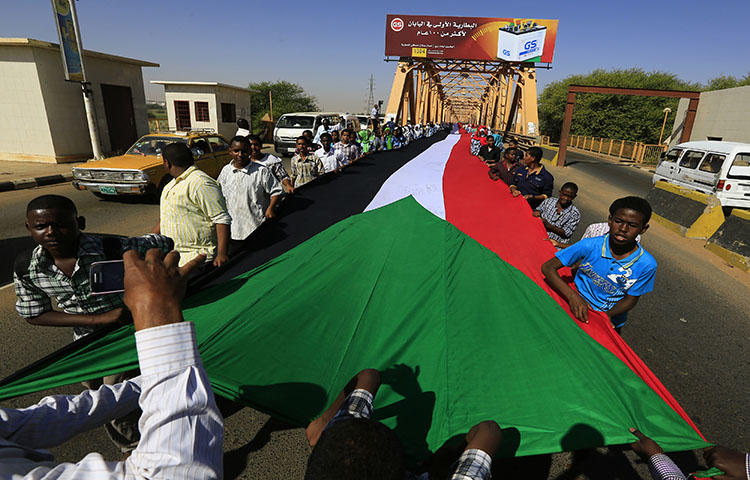New York, March 28, 2018–Sudanese authorities should stop harassing journalists and allow them to report on matters of public interest without fear of government reprisal, the Committee to Protect Journalists said today.
The Press and Publications Court sentenced two journalists for “false news” on March 22 and two on defamation charges in a separate trial on March 15, according to the Sudanese Journalist Network and news reports.
“Instead of dialing back their campaign against independent reporting, Sudanese authorities are casting around for new instruments to wield against the press, including ‘false news’ charges,” CPJ Middle East and North Africa Program Coordinator Sherif Mansour said from Washington D.C. “Sudanese authorities must stop manufacturing excuses to silence actual news reporting.”
CPJ did not immediately receive a response from the Sudanese Embassy in Washington D.C. or the Sudanese Justice Ministry in Khartoum to emailed requests for comment.
On March 22, the court sentenced Zeinelabdin Mohamed Ali, the editor-in-chief of the privately owned daily al-Mustagila, and Rida Baou, the paper’s news department head, to either pay a fine of 15,000 Sudanese pounds (US$825) or serve one month in prison for “false news,” according to the independent news website AllAfrica and the Sudanese Journalists Network. The charges relate to a critical article Ali and Baou published in 2015 about Sudan’s water supply, All Africa reported.
According to the Khartoum-based freelance journalist Abdelgadir Mohammed Abdelgadir, authorities began prosecuting Ali and Baou in 2016. Abdelgadir told CPJ that al-Mustagila shuttered in 2017 for financial reasons.
At the sentencing, Ali told the court that both journalists would go to jail rather than pay the fine; authorities transferred Ali and Baou to prison that day, according to al-Sudan al-Youm and the Sudan Tribune. Baou has since been released while Ali is still in jail, Abdelgadir told CPJ. He said it was not immediately clear why only Baou was released, or if either journalist was planning to appeal the sentence.
Separately, the same court on March 15 sentenced Ashraf Abdelaziz, editor-in-chief of the privately owned daily al-Jarida, and Hassan Warrag, a reporter at the paper, to either pay a fine of 17,000 Sudanese pounds (US$936) or spend a month in prison, according to the independent broadcaster Radio Dabanga and the Sudanese Journalists Network.
The court found the journalists guilty of defamation relating to an article al-Jarida published alleging corrupt practices in a local land deal, according to the reports. According to Abdelgadir, the column was printed in 2015.
Both journalists went to jail rather than pay the fine. Authorities released Abdelaziz and Warrag after they spent five days in Omdurman Prison near Khartoum when a public campaign raised money to pay the fine on their behalf, Warrag wrote in an op-ed for the Sudan Times after his release.
A lawyer for the journalists, Ahmad El Shukri, told Radio Dabanga that they will both appeal their convictions.
The sentences come as Sudanese authorities finalize a new law regulating the press, which Abdelgadir told CPJ will allow the government to increase control over online media.
Sudanese authorities have been cracking down on critical media since the beginning of the year, making multiple arrests and seizing newspapers before they can be distributed, according to CPJ research.
